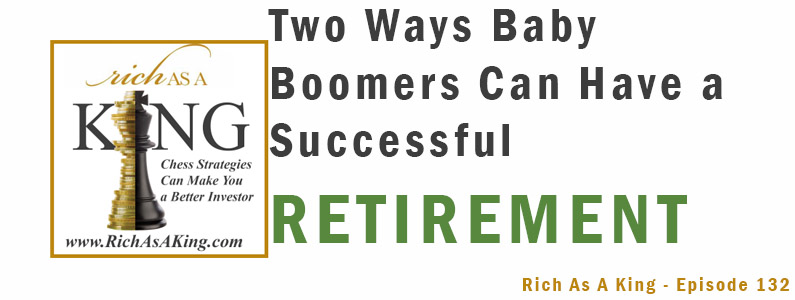
by Doug Goldstein CFP® | Aug 2, 2017 | Chess Strategies, Financial Strategies |
One very effective, but often overlooked way of saving money is increasing your monthly mortgage payments. The idea of spending money in order to save sounds like a contradiction, but if you look at your bigger financial picture it makes a lot of sense. Here’s why: Remove all obstacles in your path When you play chess, your main objective is to checkmate your opponent. To achieve your goal, you need to find strategies and tactics for removing those obstacles so that you can move forward. Occasionally you might even have to sacrifice a valuable piece to get ahead. In the short term, sacrificing a piece may not seem advantageous, but in the long term a sacrifice may help you win the game. Similarly, in personal finance, you need to eliminate the debts blocking your path towards a comfortable retirement. These debts include credit card balances, bank overdrafts, and also your mortgage. By making larger monthly payments, you can pay off your mortgage more quickly. You actually end up spending more money over the long term if your monthly payments are smaller and the mortgage is spread out over a longer duration. But why is this, if you are borrowing a specific sum of money in both cases? The answer lies in the way that a mortgage is usually built. How does a mortgage work? A mortgage is a loan you pay to the bank with your house as collateral. In America, mortgages usually vary from 10 years to as long as 50 years. The debt that you pay back consists of the principal, or the actual sum that you... Click for more

by Doug Goldstein CFP® | Jul 18, 2017 | Chess Strategies, Financial Strategies |
Applying basic chess tactics to running your finances can help you become a better investor. How? Here are some examples: Look at the whole board One of Grandmaster Susan Polgar’s most important lessons when coaching chess is to “look at the whole board.” In both chess and investing, you need to base your decisions not only on your current situation but also on the big picture. While the squares directly in front of you may seem to be totally clear from any danger, other squares that are slightly further away may be more perilous for you. Similarly, when you make investment decisions, look at the long term as well as at your current situation. Take small steps to success Very often, a game of chess is won through taking small steps rather than through sweeping, dramatic moves. A good strategy is to build up both your attack and defense gradually, accumulating small advantages along the way. Similarly, as an investor, you need to take small steps, such as putting away regular savings and contributing to retirement accounts. When you take small steps to increase savings, you let the magic of compound interest and time work to your advantage. Review your strategy Chess players continually review the tactics and strategies they employ on the board in order to improve their game. In the same way, you should review your finances on a regular basis. Life, like the chessboard, is always in motion, so make sure that your financial plan continues to be relevant for your personal situation. By making regular financial reviews, you’ll have a better grasp as to when... Click for more

by Douglas Goldstein | Jul 11, 2017 | Chess Strategies, Financial Strategies, Podcasts |
What tactics do Warren Buffett and Susan Polgar use when making investing decisions and playing chess? How can an investing tactic be applied to chess, or vice versa? Discover why Warren Buffett says you should invest within your circle of competence and how building a “moat” protects your chess pieces and also the stocks in which you... Click for more

by Douglas Goldstein | Jun 27, 2017 | Asset Allocation, Financial Strategies, Podcasts |
Which chess quote from Garry Kasparov inspired this financial podcast? Find out what this chess quote teaches about taking opportunities, and also why it’s important to have a specific line of strategy when you invest. Watch a free video about separately managed accounts... Click for more

by Doug Goldstein CFP® | Apr 25, 2017 | Chess, Financial Strategies |
When you play chess, you need to take small steps to success rather than making grandiose moves or waiting for your opponent’s blatant blunders. A good chess player builds his defensive and offensive fortress slowly, accumulating small advantages wherever possible. The same idea applies to finance. Since it’s unlikely that you will win enough money in the lottery to support you forever, you’ll need to accrue money in reasonable, steady amounts. Over time, a collection of seemingly trivial sums adds up. The book Rich As A King: How the Wisdom of Chess Can Make You a Grandmaster of Investing suggests the following small steps to help you build your nest egg. (To watch a 3-minute video about this, click here.): Regular savings. Squirrel away $5 per day, and put it into a stock mutual fund monthly or quarterly over twenty years. If you net 6% per year on that pool of money, you’ll end up with over $67,000. (If you can save even more, great!) Lower fees and expenses. Look for ways to reduce small, recurring cash outlays. You could transfer your banking relationship to a lower-priced firm (saving $400 per year), pay off your credit card every month (or better yet, switch to a debit card) and save $2,000 per year in interest payments, and renegotiate your cable and cell phone bills (save $30 per month). Examine your budget to find other possible savings routes. Implementing these alone would allow you to sock away $3,800 every year. Get a better salary or find a second income. Could you find a job with a better salary, or perhaps work... Click for more

by Douglas Goldstein | Mar 7, 2017 | Chess Strategies, Financial Strategies, Podcasts |
Baby boomers are approaching retirement. Find out about a strategy baby boomers can use to help them have a successful retirement. Click here to use the “lunch savings calculator” to help you prepare your finances for the future – no matter how old you are. This link is good for baby boomers as well as anyone else planning to retire one... Click for more










